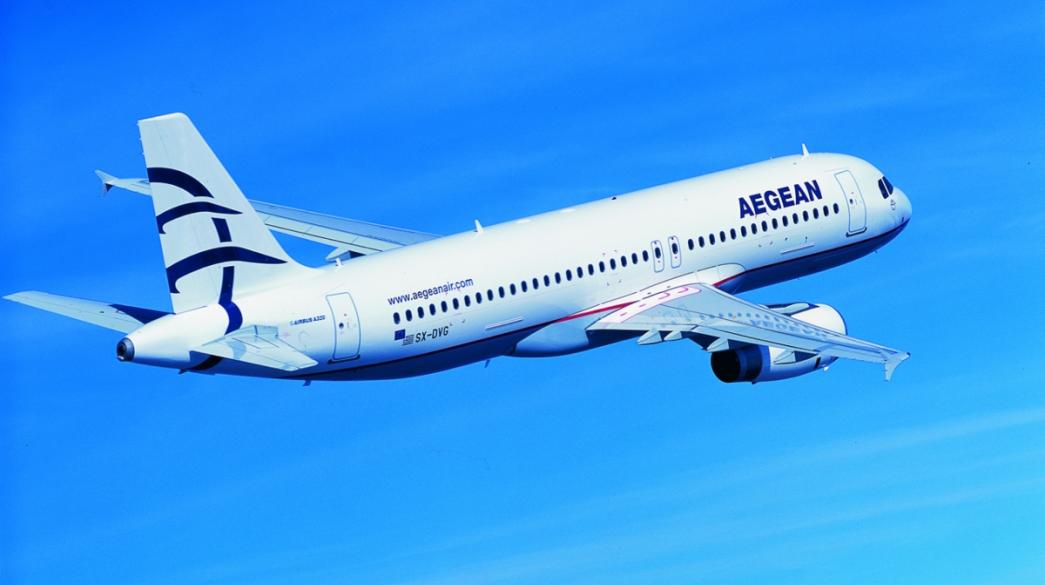One number captures, perhaps, in the clearest way the unprecedented losses suffered by Aegean from the pandemic: in one year, the country's leading airline shed 76.4 percent of its capital.
Part of this loss will be offset by the end of the first half, with a capital increase of 60 million euros and state aid of 120 million euros, but it will be crucial for the company to avoid further erosion of its capital in 2021 and win the battle for this summer.
Financial statements for 2020 published yesterday by Aegean clearly show how strongly the air carrier has been hit by the pandemic. At a group level, 68.3 percent of revenues were lost, shrinking to 415.1 million euros, while pre-tax losses amounted to 296.8 million euros, compared to profits of 106.7 million euros in 2019.
The last quarter was tough due to the lockdown and strict restrictions on domestic flights, as losses reached 59.1 million euros. Passenger traffic makes up a disastrous picture, as the number of passengers decreased to 5.17 million, from almost 15 million in 2019 (down by 65.5 percent).
These pressures were transferred to two levels of the balance sheet, as the capital base shrank and loan liabilities increased. Particularly,
The Aegean group entered the fiscal year 2020 with funds of 328.4 million euros, but during the year used 250.8 million euros, ending the year with capital of only 77.58 million euros. This reduction of 76.4 percent sent the Greek air carrier onto a similar same path as that followed by most European airlines, ie a rescue plan with state aid, which will allocate to Aegean 120 million euros to cover damages caused by restrictive measures for flights.
In order to withstand the pressure of the sharp decline in revenues and despite the fact that it had quite a lot of liquidity when the crisis broke out, Aegean sharply increased its lending, both by going directly to the banks and by leveraging state guarantees. Thus, long-term borrowing jumped from 196.6 million euros to 342 million euros, while short-term borrowing from 2.2 million euros to 95.2 million euros. Overall, lending, long-term and short-term, more than doubled from 198.8 million to 437.2 million euros.
Share capital boost in May
Aegean will be offered a substantial relief by the planned capital increase of at least 60 million euros, through which the payment of the financial aid from the state will unlock, amounting to 120 million euros. Speaking to analysts yesterday, Aegean president Eftychis Vasilakis said that between May 6 and 12, the company will announce the terms of the capital increase, so that the process can be completed by the end of the month and payment of state aid can be paid in June. Although this has not been officially announced, the existing shareholders will have a pre-emptive right to the increase.
On the crucial question, whether Aegean, unlike other European companies that needed state support for a second time, will be able to overcome the crisis of the pandemic with the new funds of 180 million euros, Eftychis Vasilakis made an optimistic forecast yesterday, underlining that the funds are sufficient to continue operations at least until next summer, even in an unfavorable scenario. Aegean's liquidity exceeds 400 million euros, Vasilakis stressed.
Uncertain summer
In these estimates, however, the big "unknown X" is the evolution of the pandemic.
Giving his own assessment of the crisis this year, CEO Dimitris Gerogiannis, avoided predicting categorically that the recovery will be substantial. As he said,
"The first months of 2021 are particularly difficult, due to the second lockdown practically across Europe, which lasts more than six months. We expect a substantial gradual recovery in Europe aviation from the second half of 2021, provided that the recent improved vaccination rate and the effective implementation of the European Union's digital green passport, which is expected by the end of June at the latest."
In this climate, Aegean has a very difficult mission this summer, as it aims at securing passenger traffic reaching 70-75 percent of the corresponding summer months in 2019, so that 2021 as a whole traffic reaches 35 percent of a normal year.
Even if all goes well, the revenue that this year's business will bring in remains uncertain, as there is the legacy from 2020 of about 87 million vouchers from flight cancellations, for which no refund was made. With these conditions in mind, expectations to overcome the coronavirus crisis seem to have to be postponed until next summer.





